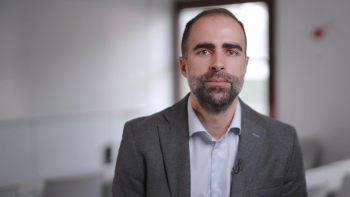
Master in Machine Learning and Artificial Intelligence
- ONLINE
- 60 ECTS
- 7500€
- OPEN CALL
- 12 MONTHS
- SPANISH
The Master in Machine Learning and Artificial Intelligence provides professionals with the necessary knowledge to acquire a comprehensive view of the elements and tools used in AI in order to define, analyse and implement strategies and technological applications in the business world.

Master in Machine Learning and Artificial Intelligence (Spanish)

Academic Partner
Additionally, obtain a double degree from our academic partner in Madrid, the University specialized in what the market demands.

QS Stars Rating System
We are the first 100% online Business School in the world to receive the QS Stars rating, obtaining the highest distinction, five QS Stars, in the Online Learning.

AMBA's BGA Membership
OBS is a member of AMBA's BGA (Business Graduates Association), an institution that recognises the academic quality of high potential Business Schools.
Master in Machine Learning and Artificial Intelligence Syllabus
Our programme is structured in 3 blocks and culminates with the Master’s Thesis. In addition, the student will be able to participate in two voluntary bootcamps and different additional activities during the development of the programme.
Block 1. Fundamentals of Artificial Intelligence
Block 2. Components and elements of Artificial Intelligence
Applications and Trends of Artificial Intelligence.
Master's Final Project
Bootcamp and additional activities
1. Fundamentals of Artificial Intelligence
This module aims to provide the mathematical knowledge necessary for the design of Machine Learning algorithms. Students will learn about mathematics and statistics for AI, equations, functions and graphs, linear algebra, mathematical optimization and algorithms, among others.
Professor: Moisés Cantón Jara, Intelligence Automation Solutions Architect at TrustPortal.
VIEW LINKEDIN
This course aims to provide the necessary programming basics for the development of AI applications. The main programming language that will be used throughout the program is Python, however, students will also learn about other main programming languages for AI, operators and expressions, algorithms and control structures, as well as data structure, among others.
Professor: Lucas Fernández Aragón, Senior Software Engineer at Red Hat.
VIEW LINKEDIN
This module aims to provide an overview of the interrelationship between Big Data, Data Science and artificial intelligence. To do so, the student will delve into topics such as the AI ecosystem, Big Data, Data science and the interrelationship between Big Data, Data Science and Artificial Intelligence, among others.
Professor: Raúl Gómez Martínez, Professor at Universidad Rey Juan Carlos.
VIEW LINKEDIN
2. AI components and elements
This module was designed to introduce students to some of the essential Machine Learning concepts and algorithms in order to generalize patterns through the data provided. Students will delve into supervised, semi-supervised, unsupervised and reinforcement learning, as well as the main ML algorithms.
Professor: Raúl Melgosa García, Group Data & Digital Expert at Generali.
VIEW LINKEDIN
This course will teach students about the main concepts, elements and tools for the development of Deep Learning applications. Students will learn about the main types of artificial neural networks, as well as the fundamentals of Deep Learning.
Professor: Fermín Lozano Rodríguez, Computer Vision Engineer at Airbus Defence and Space.
VIEW LINKEDIN
This module aims to deepen into the different automatic planning systems, focusing on the characteristics of each one of them and analysing their different applications. Students will learn about classical planning, temporal planning and probabilistic planning, as well as the main applications of automatic planning.
Professor: Roberto Fuentes Dehesa, Connected Enterprise Manager, ABSA Group.
VIEW LINKEDIN
The objective of this course is to focus on the different models and components of NLP that make communication between machines and humans possible. Students will learn about NLP models, NLP components and NLP applications, among others.
Professor: Jerónimo Molina Molina, Head of Artificial Intelligence at Helphone.
VIEW LINKEDIN
3. AI Applications and Trends
The objective of this module is to analyse how Speech and Text Analytics applications work, as well as their impact on businesses. Throughout this course, students will learn about the main applications of Speech and Text Analytics and Cognitive Services.
Professor: Carlos Rodríguez Abellán, Lead NLP Engineer at Fujitsu.
VIEW LINKEDIN
This module aims to distinguish the different industrial applications of artificial intelligence and its impact on the results and the relationship with consumers, as well as the different agents involved.
Professor: Jorge Chavero, Scrum Master, Design Thinking Master.
VIEW LINKEDIN
In this course, students will delve into the different applications of artificial intelligence in service companies and its impact on the results and the relationship with customers.
Professor: Roberto Rodríguez López, Head of Artificial Intelligence Section at Técnicas Reunidas.
VIEW LINKEDIN
Methodology

OBS has an online methodology where the core is the student. Always backed by active and internationally renowned lecturers, who share their knowledge to enhance the professional development of students through a flexible, collaborative method with personalised monitoring. The aim is to create a unique educational experience that allows the assimilation of knowledge in a practical way.
Student ON's fundamental pillar is the student and, for this reason, throughout the course students have their Programme Manager, an academic figure who accompanies them in a personalised way.
Diploma
After successfully finishing the programme, and having completed the relevant procedures, you will receive the OBS Business School diploma. In addition, and provided that you meet the established academic and administrative requirements, you will obtain a Lifelong learning Master's degree from the Universidad Internacional de la Empresa (UNIE). In order to obtain it, you must have a University Degree (Engineering, Bachelor's Degree or Diploma).
At OBS Business School we are committed to having our own degree, which allows us to quickly update and adapt the programmes in each edition to be at the forefront of the educational level demanded by companies today. Our programmes are designed for professionals who want to strenghten their management skills and learn through an international experience.

Admission Process
The fundamental aim of our admissions process is to ensure the suitability of candidates. All participants should get the most out of this learning experience, through a context in which it is possible to develop long-term relationships with classmates, faculty and alumni.
After completing the application form for one of our programmes, you will receive an e-mail with information about the School and a member of the Admissions Department will contact you to start the admission process.
Once you have successfully passed the personal interview, you must submit all the required documentation to continue the admission process and certify that you meet the requirements of the student profile. After the Admissions Committee, if it is positive, you will be able to register and enrol in the programme you have applied for.

Student Profile
The students of the Master in Machine Learning and Artificial Intelligence come from different backgrounds and sectors; however, they share a common goal - the desire to enhance their management skills to boost their careers in the digital world.

Career Opportunities of the Master in Machine Learning and Artificial Intelligence
After studying the Master in Machine Learning and Artificial Intelligence at OBS Business School, students will be able to occupy the following positions at a professional level:
- R&D Development Manager
- AI Manager
- Expert in Artificial Intelligence Development


